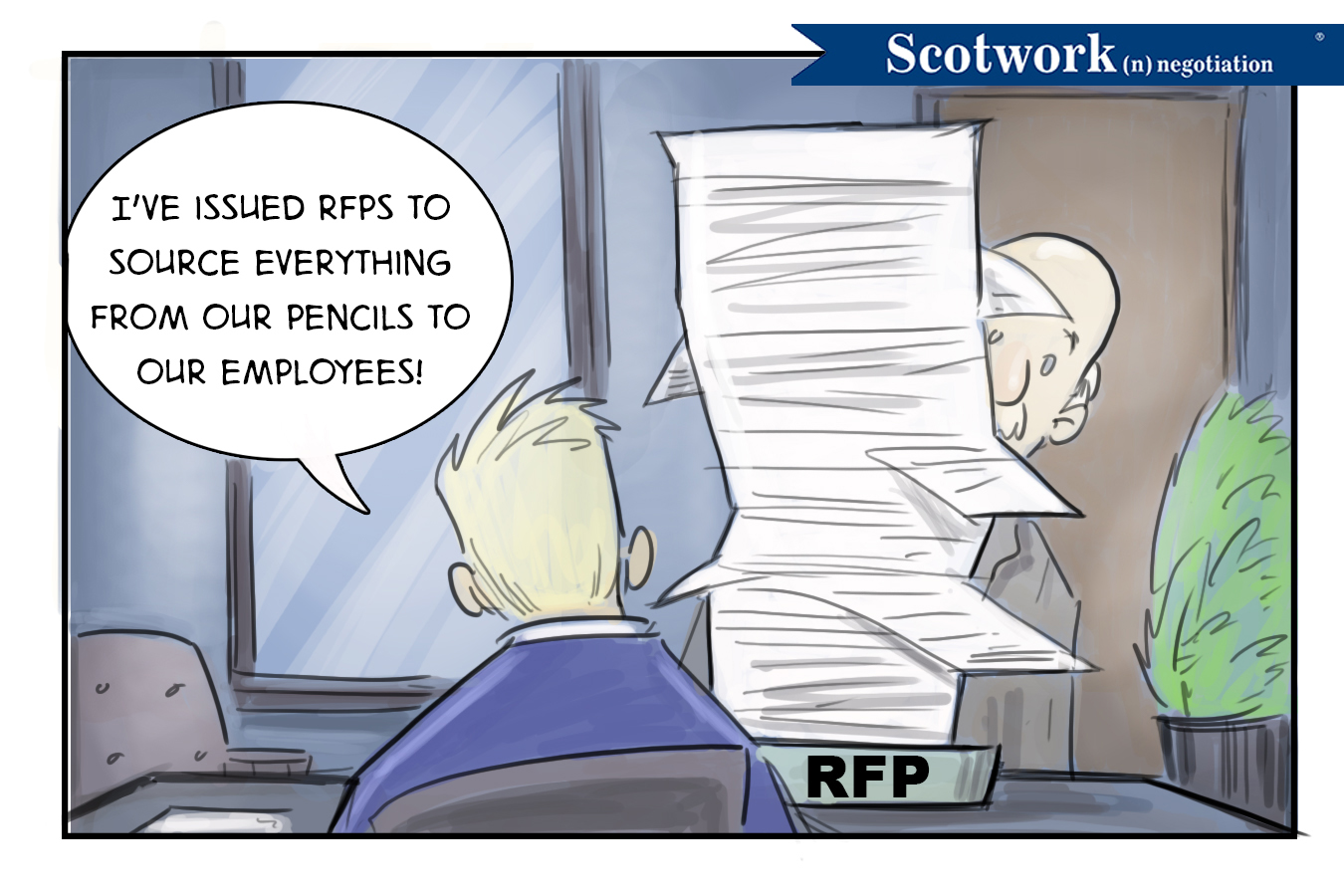We recently received a ten-page RFP document. Of that entire document, 92 words were devoted to the scope of the project, while 2,535 were committed to the RFP’s rules of engagement! This is but one example of the misuse of an RFP. Many buying organizations don’t realize that if you use the RFP process incorrectly, you will not arrive at a solution that meets your needs, the process will take longer to complete, and you will more than likely overpay! In other words, all of the things that the RFP process is supposed to prevent. Here are some ways that buyers are misusing RFPs and what can be done about it.
First of all, if you can devote only three percent of your RFP document to the problem at hand, how can you expect to find the right solution, let alone set up a partner for success? That’s the first litmus test: Can you robustly define the problem? If you can’t, you may not yet be at the RFP stage. An RFP (or RFI) can certainly give you information to help you formulate your plan, but if you are truly at a point where you don’t have a clear vision of your problem or how to solve it, it may be more advantageous to invite certain vendors to the table to have a conversation. This will give you the ability to have a more free-flowing conversation as well as an opportunity to start building a relationship with the vendor. The vendor would also love to have the dialogue and will, more than likely, share more in this format than they could in an RFP.
The second common misapplication is using the RFP for the “annual squeeze.” Oftentimes, buyers utilize the RFP process to put pressure on existing vendors. This becomes particularly obvious when the buyer rarely changes vendors regardless of the number of RFPs they run. This starts to condition bidders to either not bid or not put much effort into the response. In fact, our 2018 Buyer/Seller Survey showed that almost half of all sellers who are not currently doing business with the buyer will not respond to an RFP (this improves slightly to one-third if there’s an existing relationship with no committed business). The point being, bidders see through this tactic and will respond (or not) accordingly.
The third common issue is using an RFP to acquire a service that is subjectively defined. Products and services with defined needs, clear specifications, and little to no ambiguity of scope are better-suited for an RFP. In contrast, a service set that is very subjective or complex creates issues within the RFP process. These solutions often need an extraordinary amount of explanation regarding how they work and are implemented. Typically, they can be deployed in a variety of configurations and have countless customizations. An RFP actually limits your ability to get the best solution, because it does not encourage a conversation or creativity; ultimately, it doesn’t allow the bidder to bring their best ideas forward. For these complex solutions, we highly encourage forgoing the RFP process and having a conversation. There’s no harm in talking with multiple vendors, but you’ll get far more from the conversation while allowing the bidder to bring their best ideas to the table than you would from a stringent, process-driven RFP.
For all RFPs that you do run, we encourage you to make them exceedingly specific and inclusive of a detailed scope of work (it should exceed 92 words!). We also recommend that you encourage alternative responses as an addendum. Your vendors are experts in their markets, and they may well have better ideas that you have not considered. The more strategically you use the RFP process, the better your results will be.
Need Help With Your RFP?
Whether you’re issuing an RFP or responding to one, we can help you put your best foot forward. We can be your advisor, your coach, and your trainer. Whether you bring us in to create your strategy, or help you prepare, or develop your team’s negotiating skills, we can help you win at the negotiating table.
We’ve been consulting and teaching our proven negotiation methodology for over 40 years. We know the process, we can identify the skills required, and we have the techniques to negotiate better deals for you. Call us and let’s discuss what we might be able to do for you.

